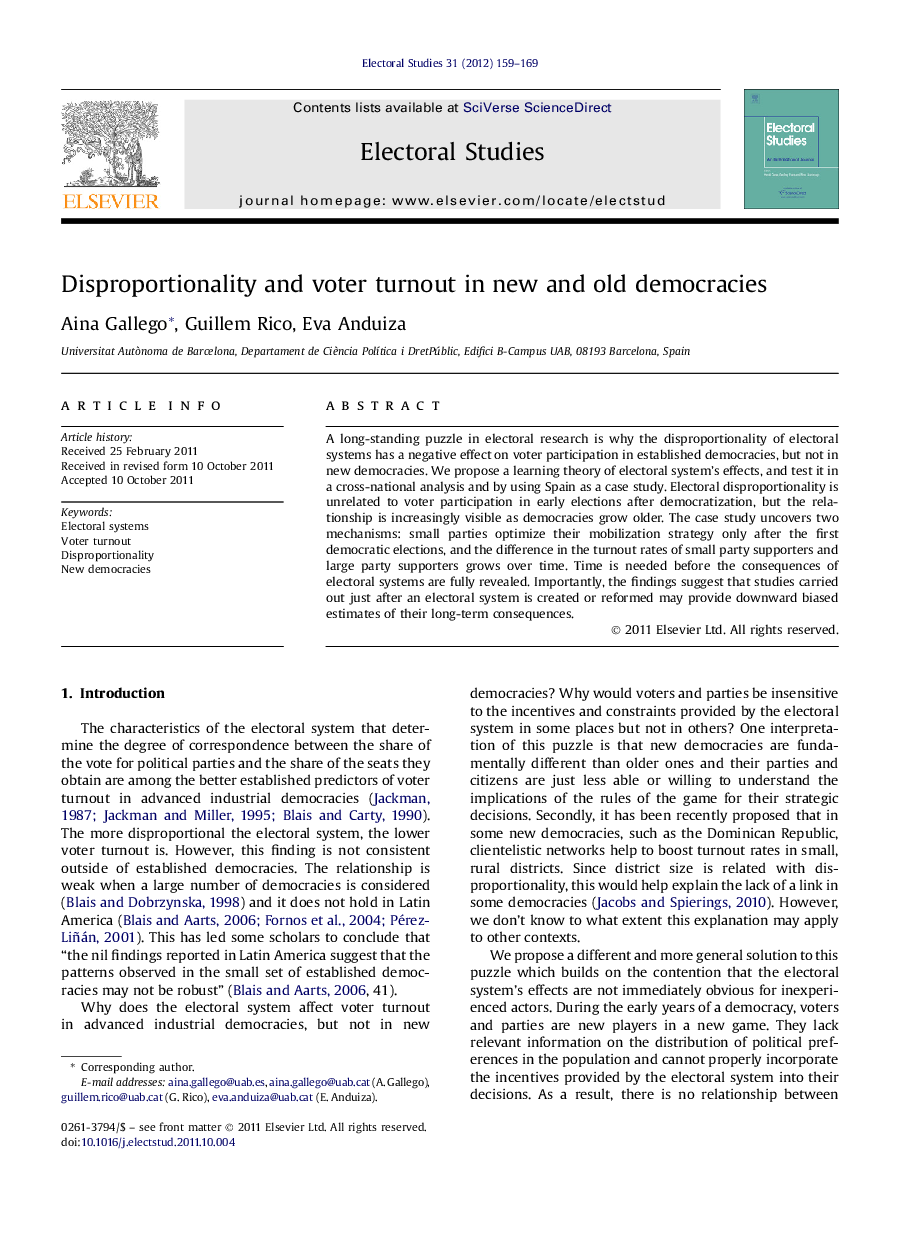| Article ID | Journal | Published Year | Pages | File Type |
|---|---|---|---|---|
| 1052114 | Electoral Studies | 2012 | 11 Pages |
A long-standing puzzle in electoral research is why the disproportionality of electoral systems has a negative effect on voter participation in established democracies, but not in new democracies. We propose a learning theory of electoral system’s effects, and test it in a cross-national analysis and by using Spain as a case study. Electoral disproportionality is unrelated to voter participation in early elections after democratization, but the relationship is increasingly visible as democracies grow older. The case study uncovers two mechanisms: small parties optimize their mobilization strategy only after the first democratic elections, and the difference in the turnout rates of small party supporters and large party supporters grows over time. Time is needed before the consequences of electoral systems are fully revealed. Importantly, the findings suggest that studies carried out just after an electoral system is created or reformed may provide downward biased estimates of their long-term consequences.
► Our developmental theory claims that actors progressively adapt to the electoral system. ► The impact of disproportionality on voter turnout grows over time in new democracies. ► The case study of Spain reveals two micro-foundations of the learning process. ► Case studies of reforms may underestimate the true consequences of electoral systems.
